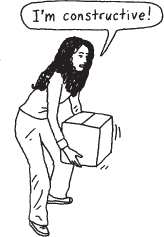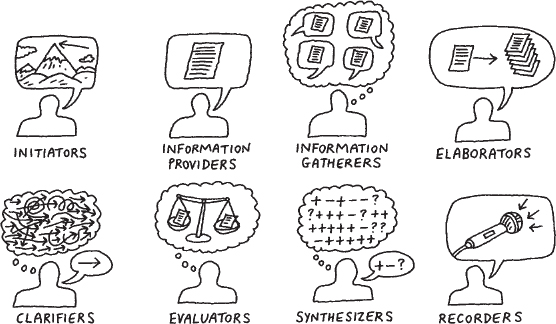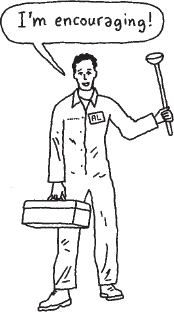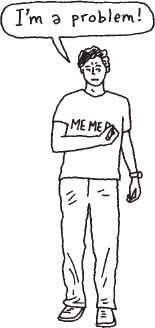Three Types of Member Roles
Printed Page 634
There are three types of roles group members can fill.4 Two of them—task-oriented and maintenance-oriented roles—are helpful. The third type—self-oriented—is not productive and should be avoided. People can take on different types of roles, even during the course of a single meeting, though most have the tendency to focus on one or two. If you’re able to note which roles you often take on, you can consider if they are the most helpful for the situation you’re in and adapt accordingly.

Task-Oriented Roles. These roles contribute to a group’s ability to accomplish its goals through enhancing members’ participation and the free flow of information within the group. In a group in which members are fulfilling these roles, you’ll likely see people asking helpful questions and making constructive comments. There are eight task-oriented roles:
- Initiators suggest the group’s goals and offer new ideas or propose new solutions.
- Information providers offer facts relevant to the issue under discussion. These facts might include researched evidence or examples based on personal experience.
- Information gatherers ask other members to share facts they know, or they seek out needed information from other sources.
- Elaborators add supporting facts, examples, or ideas to a point that someone else has made during the discussion.

- Clarifiers attempt to make the meaning of another member’s statement more precise.
- Evaluators offer their own judgments about the ideas put forward during a discussion.
- Synthesizers identify emerging agreements and disagreements among the group as a whole.
- Recorders take notes during the meeting, tracking major decisions and plans made by the group. They may send memos or e-mails to group members summarizing previous meetings, providing agendas for future meetings, or reminding people of tasks they agreed to work on between meetings.
Maintenance-Oriented Roles. These roles help sustain and strengthen efficient and effective interpersonal relations in a group. When members perform maintenance roles effectively, the group is more likely to work together comfortably as a team, support one another, and present findings or recommendations that reflect group consensus. There are five maintenance-oriented roles:

- Harmonizers decrease tension in the group, perhaps by infusing humor at just the right time or by making positive and optimistic comments.
- Compromisers attempt to find common ground between adversaries within the group, and offer solutions that may be palatable to people on both sides of the conflict.
- Encouragers inspire other group members by complimenting their ideas and work.
- Gatekeepers facilitate the exchange of information among group members.
- Norm facilitators reinforce healthy group norms and discourage unproductive ones.
Self-Oriented Roles. These roles accomplish little for a group and are motivated by the selfish ends of individual members. Groups with a heavy emphasis on these roles may experience incomplete findings, infighting, and dissension. There are four self-oriented roles:

- Blockers stop the group from moving toward its objective—by refusing to accept decisions the group has made or by arbitrarily rejecting other members’ ideas or opinions.
- Withdrawers refuse to make any contribution or to participate in the discussion. They may feel out of their element in the group or may be having difficulty following other members’ comments and ideas.
- Dominators monopolize group interactions, interrupting others, arguing for the sake of arguing, and insisting on having the last word. This behavior may stem from feelings of insecurity, an aggressive personality, or some other factor.
- Distracters—the exact opposite of harmonizers—send the group in irrelevant directions with off-topic comments or extraneous conversation, perhaps because they have trouble concentrating on a topic or focusing on the completion of a process.

When you’re participating in a group, focus on how you can fulfill task-oriented and maintenance-oriented roles (or encourage others to do so). Also, avoid playing self-oriented roles, and discourage others from adopting them.